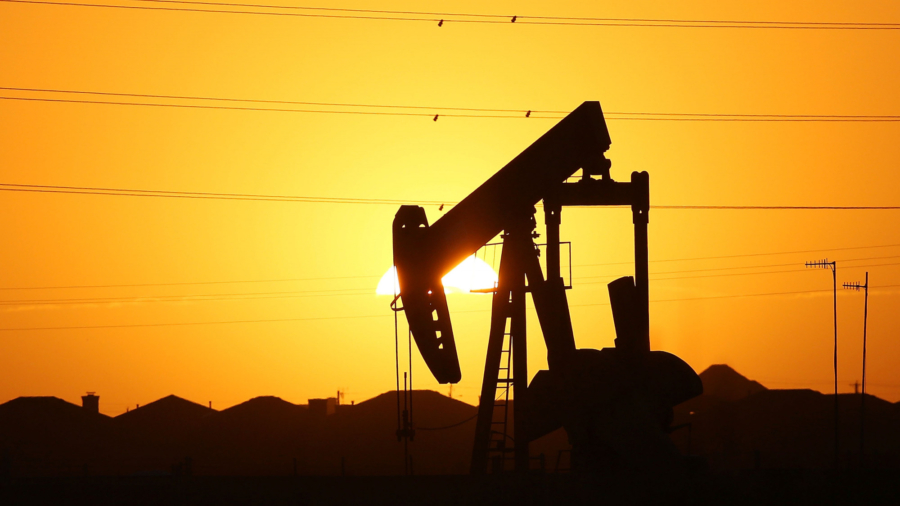Oil prices surged above the $100 per barrel mark on Wednesday after Russian President Vladimir Putin announced the launch of military action against Ukraine.
U.S. crude futures were up by 5.46 percent and trading at $97.56 per barrel as of 10:27 a.m. GMT, while Brent crude futures were up 6.47 percent at $103.32, the first time they have been over the $100 mark since 2014.
Meanwhile, natural gas prices at one point surged nearly 6 percent.
The surge in prices came shortly after Putin announced in a televised address that a military operation was set to get underway in Ukraine with the intention of protecting civilians and to “demilitarize” Ukraine, in response to alleged threats coming from Ukraine.
Shortly after Putin’s announcement regarding the military operation, which Ukraine’s defense ministry called “an unjustified, deceitful, and cynical invasion,” explosions were reported in Ukraine’s capital, Kyiv, as well as in other key cities, such as Kharkiv, Mariupol, and Odesa.
U.S. Sen. Marco Rubio (R-Fla.) said on Twitter that there was a “full scale & comprehensive military assault” underway throughout Ukraine with “Airborne & amphibious landings, missile strikes from air, ground & naval forces, electronic & cyber attacks & a large ground force to occupy a large swath of territory.”
Rubio said that Ukraine is “outgunned and outmanned” but that “they are brave & tough fighters and as the world will soon learn they have already inflicted damage on Russian invaders.”
Livestream video obtained by CNN also shows tanks rolling into Ukraine from a border crossing with Belarus at around 6:48 a.m. local time.

The EU has repeatedly warned it is ready to impose “massive consequences” on Moscow’s economy if Russia invades Ukraine, but had previously stopped short of launching sanctions, in part due to the EU’s close energy and trade ties with Russia.
However, on Feb. 23, the European Council of the European Union announced that it had agreed to sanction 351 members of the Russian State Duma who voted on Feb. 15 in favor of the appeal to Putin to recognize the independence of the self-proclaimed Donetsk and Luhansk “republics,” EU headquarters said.
Sanctions were also placed against an additional 27 individuals and entities who the EU council said “have contributed to the undermining or threatening of the territorial integrity, sovereignty, and independence of Ukraine.”
Restrictions were also placed on economic relations with the non-government-controlled areas of Donetsk and Luhansk and on Russia’s state and government ability to access the EU’s capital and financial markets and services.
Some EU members have cautioned against imposing strong sanctions on energy imports, given the EU’s reliance on Russia for energy flows.
According to Eurostat, Russia is the fifth-largest trade partner of the EU, with imports of $177.9 billion and exports of $104.1 billion (pdf).
A number of EU countries, such as Germany and the Czech Republic, also have a high reliance on Russian natural gas, and Russia remained the largest supplier of natural gas and petroleum oils to the EU in 2021, according to Eurostat.
Russia is also one of the world’s largest producers of oil and natural gas, accounting for 17 percent of the world’s natural gas and 12 percent of its oil.
Meanwhile, U.S. President Joe Biden has said that the United States will impose sanctions on Russia “far beyond” the ones that were imposed years prior in 2014 following the Russian annexation of the Crimean peninsula.
Those sanctions target Russian elites close to Putin, and their family members, as well as two state-owned banks and the country’s sovereign debt.
But while oil prices jumped on Wednesday amid escalations in Ukraine, Goldman Sachs has said this shouldn’t have much impact on energy prices.
“While Europe imports a large share of its natural gas consumption from Russia, the U.S. is a net exporter of natural gas and any spillover effects on U.S. gas prices should be modest,” analysts at the Wall Street bank said in a report on Wednesday.
“Our commodities strategists also expect only a modest impact on oil prices, though they see the risks as skewed to the upside because the oil market is already tight.”
From The Epoch Times

